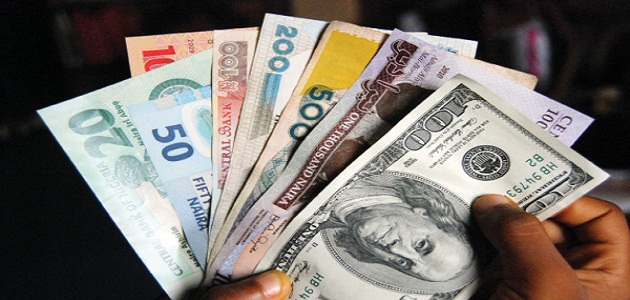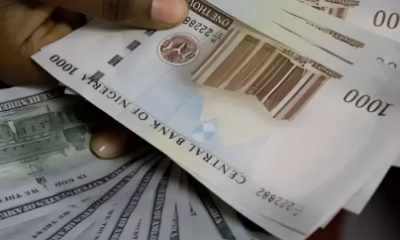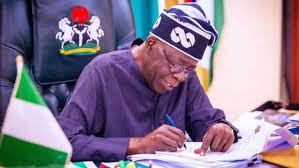By Odunewu Segun
Following the removal of pegged rate by the Central Bank of Nigeria, naira has gained more points against the dollar at the new interbank market, closing at N284.83 on Tuesday as against N288.8 recorded on Monday
The apex bank intervened on Tuesday to sell dollars at the interbank market after floating the naira failed to attract trading between banks due to liquidity concerns. A total of $31m, sold between N282 and N285 per dollar, was done around 12pm, which traders said was an intervention by the central bank. The interbank market quoted the total traded volume at $73m.
The naira firmed to 281 after the dollar sales, recovering from a low of 287 it touched earlier on Tuesday. On Monday, the CBN said it cleared a total foreign exchange demand backlog of $4bn, with a dollar exchanging for N280 at the foreign exchange market.
According to the Chief Executive Officer, Cowry Asset Management Limited, Mr. Johnson Chukwu, when naira liquidity reduces, the pressure will moderate. “Naira liquidity will reduce when the $4bn that they claimed they have met is withdrawn from the system. It is about N1.3tn and that is about the liquidity that has been pursuing forex. So, you are going to see a moderation in demand.”
ALSO SEE: Naira depreciates by 30% as CBN appoints 15 banks as FX primary dealers
He added, “In the immediate term, you are going to see continuous volatility and possible depreciation of the naira; in the medium term, we may see stability; and then in the long term, we will see appreciation.
The Chief Executive Officer, Chapel Hill Denham, a Lagos-based investment bank, Mr. Bolaji Balogun, said it would take a while for the market to settle, considering that the backlog of forex demand had built up in recent months.
“This is something that the central bank should have done six months ago. By now, the backlog would have been cleared. By delaying so long, the backlog builds up and you have much more to clear. We must clear that backlog.”
Describing recent developments in the interbank market as the start of a positive direction, Balogun said the central bank might also have to tighten money supply, which meant that interest rate would go up.
The central bank, which has seen its reserves fall to more than 10-year low of $26.4bn, will struggle to keep intervening on a large scale to defend the currency, according to the UBS Wealth Management.

 Health5 days ago
Health5 days ago
 Entertainment7 days ago
Entertainment7 days ago
 Crime6 days ago
Crime6 days ago
 Education1 week ago
Education1 week ago
 Health1 week ago
Health1 week ago
 Comments and Issues7 days ago
Comments and Issues7 days ago
 Football7 days ago
Football7 days ago
 Latest6 days ago
Latest6 days ago













